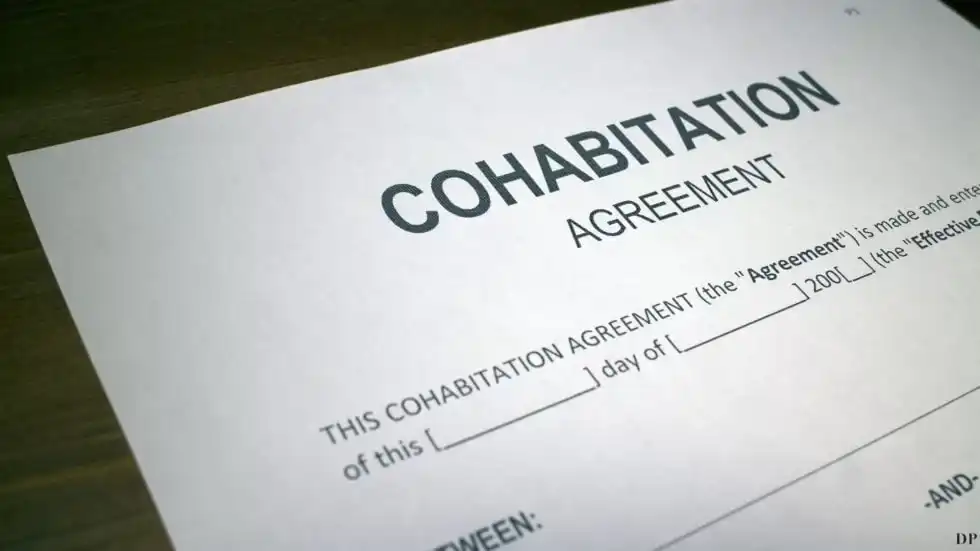Cohabitation Agreements

In the event of death or breakup without a cohabitation agreement, you and your partner may be treated as legal strangers.
If you have chosen cohabitation over marriage – you aren’t alone. Cohabitation between married partners has increased 1,150 percent in the last 40 years. Many myths still exist, however, about the concept of “living together”. The fact remains that, unless you define your partnership through a legal contract, the law may view you as strangers in the case of a breakup or death.
What is Cohabitation?
In recent years, the concept of cohabitation has expanded to include any two partners who have integrated their residence, property and daily lives. It is often seen as a starting point for people headed toward marriage, but can also be an ultimate arrangement for couples who do not want the social, personal and legal commitment that marriage represents. There are numerous other reasons individuals cohabitate, including:
- Reduction of living expenses.
- Inability of a union of same-sex individuals to be recognized by the law.
- Choice by older individuals who do not want to upset family or friends through remarriage.
Cohabitation Agreements
By choosing cohabitation, couples are foregoing certain rights and protections provided for them in a marital union. Married couples accrue legal rights, including the right to receive a property settlement and/or support in the event of divorce; file joint tax returns; receive distributions from estates free of estate tax; receive survivor’s benefits from retirement plans and Social Security; obtain “family” health insurance, dental insurance, and other employment benefits; and automatically share in his/her partner’s property in the event he/she dies without a will. Unmarried couples, on the other hand, generally acquire similar rights by expressly securing their benefits in cohabitation agreements (also referred to as cohabitation contracts). A cohabitation agreement is a private contract between cohabitants, which typically tries to establish contractually for the parties the rights and obligations that married people obtain by custom, statute, and agreement.
Regardless of how close your relationship is with your partner, living together does not automatically entitle either one of you to the rights and protections afforded to married couples. It is therefore important for you and your partner to state your rights and obligations in a legal document in the event of a breakup or death. A cohabitation agreement will insure that you and your partner are protected at the same time that it clarifies your understanding of the relationship.
If you feel that you may have a potential case pertaining to family law please call (805) 879-7523 or click here to email us and have an attorney contact you about your case.
Why a Cohabitation Agreement?
Even though you may regard your partner as a family member, the law usually does not. As a result, your partner may not be taken care of in the manner in which you wish. For example, if you die without a will, your property generally will pass to your next-of-kin and not your partner. Paradoxically, the law may provide certain benefits for your partner that you had no intention of giving to him or her. Today, some courts are using equitable doctrines to apportion assets between cohabitants to prevent hardship and injustice. Since these doctrines are vague, they are difficult and expensive to prove. Therefore, you should be proactive and define your own partnership through a legal contract. Here are some additional reasons to enter into cohabitation agreements:
- To guarantee the financially less secure partner an equitable settlement in the event of a break-up.
- To properly compensate a party for his or her role as a caretaker.
- To allow the financially more secure party to limit exposure in the event of a break-up.
- To disclose expectations of the relationship, both financial and personal.
What to Cover in a Cohabitation Agreement?

A cohabitation agreement is a flexible document that is less subject to regulation than a pre or post marital agreement. These contracts typically cover the following key points:
- Distributing property in case of death or break-up.
- Obligating financial support during the relationship or upon its dissolution.
- Handling the payment of debts in case of death or break-up.
- Dividing the principal residence upon break-up of the relationship.
- Defining support, custody or visitation rights for minor children (although not necessarily binding).
- Specifying health insurance coverage.
- Determining the right to serve as guardian/conservator in the event of incapacitation.
- Establishing the right to make medical decisions in the event of incapacitation.
An Important Note:
Regardless of how close your relationship is with your partner, living together does not automatically entitle either one of you to the rights and protections afforded to married couples. It is therefore important for you and your partner to state your rights and obligations in a legal document in the event of a breakup or death. A cohabitation agreement will insure that you and your partner are protected at the same time that it clarifies your understanding of the relationship.
If you feel that you may have a potential case pertaining to family law please call (805) 879-7523 or click here to email us and have an attorney contact you about your case.
